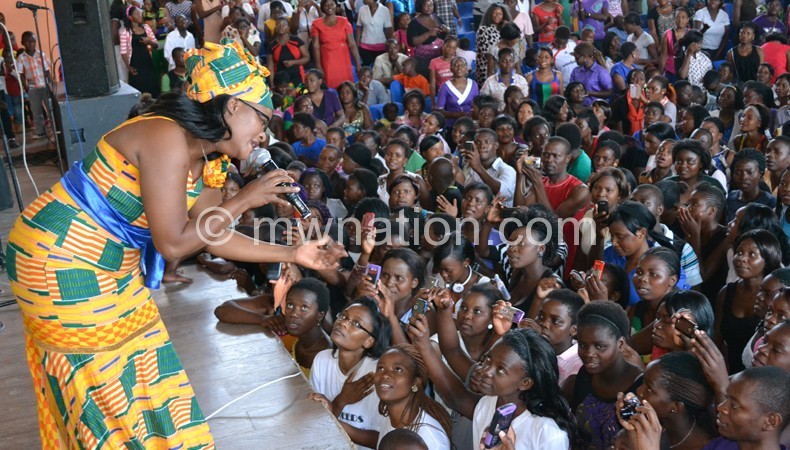Gospel music thrives, artists enjoying massive patronage
As the industry continues to heamorrhage from the piracy pandemic, it has become necessary for musicians to rely on live shows to supplement their earnings.
Resultantly, this has increased the frequency of live shows to an extent that some music groups hold more than two shows in a weekend. Also dominating the list of music shows and patronage has been secular music which brags of having the largest number of artists.


Previously, some pundits have argued that secular music enjoys good patronage because it attracts all categories of people.
However, the story is about to be rewritten as there has been a surge in gospel music patronage as witnessed at several shows across the country.
Last week, the Great Angels Choir raked over K7 million in just three shows in Zomba, Blantyre and Lilongwe. The three shows registered over 850, 2 500 and 3 700 patrons respectively.
Chill has been observing trends of patronage at secular shows and it is evident that secular music shows can now hardly achieve such numbers, unless it is free.
So what can be the factors?
Veteran secular musician Lucius Banda, who has been on the stage for more than two decades, admits to the new trend.
Lucius says secular artists have lost their popularity while the gospel artists have worked hard to earn their patronage.
“We have abused ourselves and killed the patrons’ desire to watch us. People have watched us too many times and most of us display the same quality. You cannot expect to create an anticipation to be watched more when you are always on the road. Too many shows have cost us a lot,” says Lucius.
Musicians Union of Malawi (MUM) president Chimwemwe Mhango believes gospel artists deserve credit for the work they have put in.
He says, at the moment, there are few artists in secular circles who are crowd-pullers.
Mhango says it will take time for Malawi to have powerful artists such as Bright Nkhata and Kalimba, MBC Band and Aquarius Band.
He says these were original groups that performed to the value of money.
He added that this is the approach that has been adopted by some gospel artists.
Mhango, who is also a gospel artist of repute, says gospel artists are not working as in a competition, but a fellowship.
“You can hardly see two music shows of gospel artists in the same area. In a month, a gospel artist can have only one show and this creates hunger in patrons to see them more and hence the good patronage at their shows. There is creativity and serious stagework by gospel artists,” he says.
Environment is another factor that influences patronage towards gospel shows.
Mhango and Lucius both noted that most patrons feel sanctified to be associated with gospel music.
They say even parents find it proper to let their children patronise gospel shows.
“The environment at secular music shows is associated with alcohol, smoking and other immoral behaviour compared to gospel where everyone tries or pretends to be religious to suit the environment,” says Mhango.
Music lecturer in the department of fine and performing arts at Chancellor College, Alinane Mphande, offers a different opinion.
She says there are several factors that influence people to love a particular type of music or artist, which in turn, affects patronage trends.
She says the common factors include artists’ popularity, music genre, lifestyles, life situations and personal wishes.
“There are some artists who are loved more than others and this cannot be controlled as it depends with an individual. Other artists are loved because of the genre they do or the purpose of their music. For various reasons, some prefer music that appeals and soothes while others may prefer one that will make them very happy.
“There are challenges we are facing as a nation and there are individual issues. All these can affect the music popularity depending on how the majority defines solutions to the challenges. If they feel the solution is spiritual, then more will twist themselves towards spiritual songs,” she said, adding that this change has been gradual.
Mphande adds that gospel music deserves the largest following because it is about spiritual and righteousness which almost everyone wants to be associated with.





